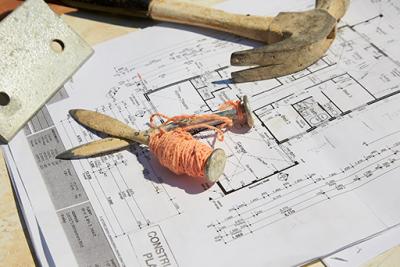
If you’re thinking about a career in the construction industry, this course will give you a great overview of different trade areas with a focus on the key skills and knowledge required to work as a plasterer or in the finishing (mortar) trade which is a key part of all aspects of building.
You'll learn how to read plans, interpret specifications, take accurate measurements, calculate basic material quantities, understand hazards related to asbestos and other materials, follow onsite workplace safety and health procedures, and communicate with your workmates and team leader. You'll also gain skills in preparing and applying different types of mortar for a range of areas including tiling and bricklaying.
The course also includes your Construction Industry White Card, which is an essential requirement for anyone entering a building site in Australia
Choose a WA TAFE college that delivers this course
To find out more about doing this course at a WA TAFE college, select one of the TAFEs listed below to read their course descriptions. You'll also be able to see at which TAFE campus/es the course is delivered.
If you would like further information such as when the course is available and how to enrol, and details of course fees, or if you have questions about how the course is delivered, please follow the Find out more link to go to the TAFE's website where you will find full course details and contact information so that you can speak to the TAFE directly.
Try a variety of trades to see which one's for you
The Building and Construction industry is one of the largest employers in Australia. Due to the successful mining resource sector, increasing economic activity and migration to Australia from overseas, there is currently a massive shortage of residential homes, apartments, and commercial buildings. This has led to huge demand for qualified tradesmen and Apprentices in all trades.
North Metropolitan TAFE's exciting new mortar trades course is perfect for those not sure of which trade is for them. You'll cover bricklaying, wall and floor tiling, solid plastering and wall and ceiling fixing.
Offered at our Balga and Clarkson campuses, you'll gain an introduction to each of the above trades. You can then decide which trade pathway to choose, and the relevant lecturer will help organise work placement with a qualified employer which can lead to an Apprenticeship and the start of a successful and rewarding career.
Construction pathway courses lead to lifelong learning where on completion of an apprenticeship, you can complete further training and progress to become a Builder, Supervisor, Scheduler, Estimator, Trade Lecturer, or many other Construction careers.
Many trades in the building industry revolve around structural work that is essential but largely out of sight. The mortar trades, also called finishing trades, include all you can see, such as brick and blocklaying, solid plastering, wall and floor tiling and wall and ceiling lining. This course allows you to get a taste of each of these trades, plus the safety and building constriction industry basic tool knowledge to begin a career in mortar trades.
Study in specialist facilities
Rockingham campus features modern workshops with tools and equipment you will find on any work site. Demonstration areas include spaces where entire formwork and housing can be built, with special wet areas dedicated to solid plastering, ceiling and tiling applications, plumbing pit, gas and electrical stages. Our timber workshop includes multiple lathes and saws for large scale construction.
The information presented on the course lists within this website is provided to the Department of Training and Workforce Development by the WA TAFE colleges and private training providers, and is offered as a guide only. It is updated regularly, however some changes to details may occur in between updates. You should always contact the TAFE or private training provider directly to confirm details and/or ask questions.


